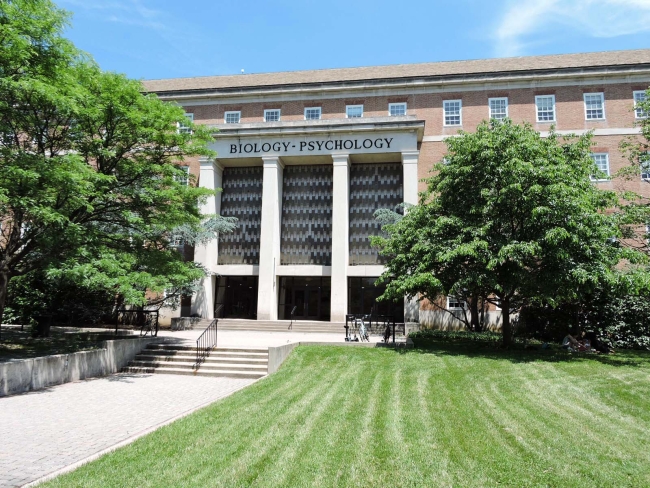You have /5 articles left.
Sign up for a free account or log in.

Three University of Maryland at College Park psychology professors requested retractions of articles they co-authored.
University of Maryland at College Park
An American Psychological Association journal’s outgoing editor in chief has requested and received retractions of eight papers he co-authored in the publication.
All the retraction notices in the Journal of Counseling Psychology say that Dennis Kivlighan, the journal’s editor in chief, and Clara Hill, a co-author, requested the withdrawals after a University of Maryland at College Park Institutional Review Board investigation.
“The IRB found that the study included data from between one and four therapy clients of the Maryland Psychotherapy Clinic and Research Laboratory (MPCRL) who either had not been asked to provide consent or had withdrawn consent for their data to be included in the research,” says each one of the retractions, published in the journal’s July issue.
Rose Sokol, publisher of American Psychological Association journals and books, said there will eventually be 17 retractions from this one lab across three journals of which the association is publisher of record. She said 14 of those retractions will be in the Journal of Counseling Psychology and the rest will be in Psychotherapy and Dreaming.
The university didn’t provide interviews Monday.
“The graduate students involved in this research and listed as authors and contributors to these articles were not responsible for obtaining and verifying participant consent but agreed to the retraction of these articles,” a university spokeswoman said in an email. She added that the clinic and lab closed last month but didn’t explain why.
The clinic and lab’s voice mail on Monday said it offered “low-cost therapy services to adults.”
Spectrum, which focuses on autism research news, first reported on the retractions Friday.
Four of the Journal of Counseling Psychology papers that have been retracted so far were published in the fall, two in 2021, one in 2019 and one in 2017.
Retractions for four of the articles additionally list Charles Gelso as requesting the withdrawals. All eight retractions say all the other co-authors were “not responsible for obtaining and verifying participant consent.”
Kivlighan is a counseling psychology professor at the University of Maryland at College Park and interim chair of the Department of Human Development. Hill is a professor in the university’s Department of Psychology who used to be editor of the Journal of Counseling Psychology, while Gelso is a professor emeritus and senior lecturer in that department.
None of the three provided interviews Monday. Kivlighan referred Inside Higher Ed to the university’s press contact.
Deirdre Barrett, editor in chief of Dreaming, said Hill and Gelso this winter requested a retraction of a 2013 article, “The dreamscape of psychodynamic psychotherapy: Dreams, dreamers, dream work, consequences and case studies.”
Hill and Gelso also told Barrett that the other co-authors—who didn’t include Kivlighan—were students and “not responsible for obtaining and verifying participant consent.”
That published retraction notice says, just like the Journal of Counseling Psychology retractions, that the University of Maryland “found that the study included data from between one and four therapy clients” of the same clinic and lab “who either had not been asked to provide consent or had withdrawn consent for their data to be included in the research.”
Most of the Journal of Counseling Psychology retracted papers dealt with “working alliance”—part of the relationship between therapists and patients.
The abstract for one retracted paper, for example, referenced analysis of “data from intake and after every eight sessions for the first 24 sessions of open-ended individual psychodynamic psychotherapy from 94 clients nested within 12 therapists.” It said the findings “suggest that having a strong working alliance is associated with clients developing more meaning in life, and reflectivity about meaning in life is associated with clients improving in psychotherapy.”
Another retracted study analyzed “longitudinal data from 4,489 sessions at a university clinic where 17 doctoral student therapists provided low-cost, open-ended, individual psychodynamic psychotherapy to 135 adult community clients,” while, in another study, “44 therapists and their 284 adult community clients completed measures of working alliance and session quality after every session (a total of 8,188 sessions included in this study),” according to abstracts.
Another study was titled “Do therapists improve in their ability to assess clients’ satisfaction? A truth and bias model.”
Sokol, from the American Psychological Association, said the retractions aren’t connected to Kivlighan’s departure from the editor in chief role.
“We have a regular overlap between editors, so [at] the end of one editor’s term we have the other editor begin their incoming year,” she said.




